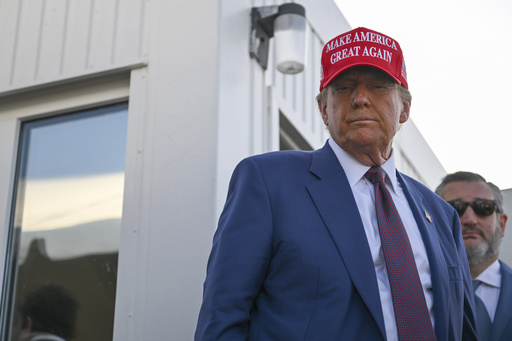
WASHINGTON — As the Senate gears up to review President-elect Donald Trump’s Cabinet selections, it’s likely they will proceed without a critical component of the nomination process: a background check conducted by the FBI.
The Trump transition team has yet to formalize the necessary agreements with either the White House or the Justice Department, which would enable the FBI to conduct comprehensive background screenings on his appointees. These checks, which are essential for security clearances and meeting Senate nomination standards, have not been established.
Consequently, the Senate may be asked to confirm Trump’s nominees without the usual thorough vetting aimed at identifying any personal issues, criminal records, or potential red flags that could question a candidate’s fitness for the role. Concerns have already emerged regarding several individuals Trump intends to place in his administration.
“There are significant risks on the security front if this process is not handled correctly,” remarked Dan Meyer, a Washington attorney specializing in background checks and federal employment law.
The situation hinges on a memorandum of understanding that allows an incoming president to request background checks while the FBI alerts the White House to any adverse information it uncovers. However, this essential document remains unsigned, with the Trump team instead leaning on internal personnel and outside advisers for their vetting procedures. Trump’s skepticism towards the FBI has been heightened over the years, particularly due to the 2016 Russian election interference investigation and subsequent inquiries into his handling of classified documents and challenges to the 2020 election results, which culminated in his recent indictment.
A spokesperson for the Justice Department confirmed that talks are ongoing with the Trump transition team regarding the signing of the necessary memo. The department reiterated its commitment to facilitating a smooth transition and is prepared to provide briefings on its operations and responsibilities, as well as to process security clearance requests for individuals requiring access to sensitive national security information.
While a background check is mandated for those seeking security clearance, once Trump assumes office on January 20, 2025, he can issue security clearances at his discretion, similar to actions taken for his son-in-law Jared Kushner during his first term.
“The president controls the personnel security system,” Meyer explained. “The director of national intelligence serves as his executive agent in this area. The president can swiftly alter the security processes with an executive order.”
Several lawmakers are voicing concerns regarding the apparent lack of scrutiny facing the nominees being brought forth for consideration. Two Democratic representatives, Don Beyer from Virginia and Ted Lieu from California, introduced legislation aimed at solidifying the FBI’s role in the background checking of presidential political appointees.
The scrutiny of Trump’s selections is particularly pertinent given some of their controversial backgrounds. His nominee for attorney general, former Florida Representative Matt Gaetz, faced an investigation by the Justice Department over allegations of sex trafficking involving minors, though no federal charges were filed against him. Furthermore, he was under inquiry regarding claims of sexual misconduct, drug use, and seeking to obstruct investigations into his actions—which he has denied.
In addition, Pete Hegseth, nominated for defense secretary, was previously investigated for alleged sexual assault during a 2017 speaking engagement but was not charged. His attorney clarified that the encounter was consensual and confirmed that Hegseth settled with the woman involved to avert a possible lawsuit, insisting that the situation involved “blackmail.”
Democratic lawmakers are signaling their intent to thoroughly scrutinize these appointments. “A superficial background check, where we just contact a handful of people, won’t suffice,” stated Sen. Jack Reed of Rhode Island, who chairs the Senate Armed Services Committee. He is set to retain a key Democratic position next year as the Republicans regain the majority and begin considering Hegseth’s nomination.
The nomination of former Democratic Representative Tulsi Gabbard for the role of director of national intelligence has also raised alarms among U.S. intelligence professionals. Concerns stem from her past criticisms of Ukraine, her comments that appeared sympathetic to Russia, and undisclosed meetings with Syrian President Bashar Assad, a close ally of both Russia and Iran.
The Senate must rigorously vet Gabbard and resist voting for her confirmation out of allegiance to Trump, emphasized Rep. Jim Himes, D-Conn., who ranks as his party’s leader on the House Intelligence Committee. “Any Republican senator who opts to confirm individuals like Gaetz, Robert Kennedy, or Tulsi Gabbard will be recorded in history as someone who surrendered their responsibilities to Trump,” Himes noted during a recent appearance on CBS’ “Face the Nation.”
